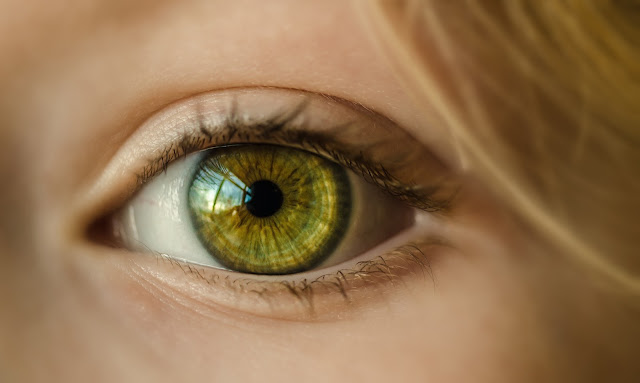Many of us have been advised to include carrots in our diet to maintain good eyesight. But is there any truth to this claim? Can one enhance their vision naturally? Are there particular foods that can promote better eyesight? It appears that certain foods contain essential vitamins and nutrients that can bolster eye health. However, it's important to note that improving eyesight naturally is not possible, and altering refractive errors like myopia, hyperopia, astigmatism, or presbyopia is beyond the reach of dietary changes. These visual issues can be managed with glasses, contact lenses, or refractive surgery.
While there are various factors contributing to declining eyesight, one significant factor is age-related macular degeneration. It's believed that incorporating foods beneficial for eye health into your diet can potentially enhance vision and overall eye health. In rare instances, it might even reduce the need for eyeglasses. Let's explore specific vitamins and nutrient-rich foods that can help maintain optimal eye health.
To maintain healthy eyes, consider incorporating these foods into your diet:
1. Fatty Fish: Salmon, tuna, and others rich in omega-3s benefit eye health by addressing dry eyes, meibomian gland dysfunction, and potentially reducing macular degeneration risk.
2. Citrus Fruits: Lemons, limes, grapefruits, and oranges provide essential vitamin C, a potent antioxidant supporting eye health. Incorporating these foods helps preserve clear vision and prevent eye issues.
3. Legumes: Foods like lentils and kidney beans are excellent sources of zinc and protein, making them a meat alternative that's beneficial for eye health. Lentils, in particular, are healthy for your eyes due to their lack of saturated fat and high fiber content.
4. Dairy Products: Milk and yogurt provide several eye health benefits. They are rich in vitamin A and zinc, with vitamin A protecting the cornea and zinc aiding its delivery from the liver to the eyes. Zinc also supports nighttime vision and helps prevent cataracts. Incorporate grass-fed milk in the morning or evening, and enjoy yogurt during the day.
5. Beef: Beef is another food that supports eye health by providing zinc, which can slow the progression of macular degeneration.
6. Eggs: Eggs provide a rich source of vitamin C, E, lutein, and zeaxanthin. They offer a valuable blend of nutrients that combat macular degeneration, promoting excellent eye health.
7. Sweet Potatoes: Sweet potatoes are abundant in vital eye-friendly nutrients like vitamin A, vitamin C, and lutein. Opting for sweet potatoes instead of white potatoes can help lower the glycemic impact.
8. Leafy Greens: Leafy green vegetables are indispensable for maintaining good vision. They are packed with essential vitamins, including vitamin C, and are a rich source of lutein, a critical carotenoid that enhances eye health. Adding leafy greens to your diet contributes to and fortifies your visual well-being.
9. Nuts: Nuts come in various types, but they're nutritional powerhouses, rich in protein, essential fatty acids, and fiber. Some, like almonds and hazelnuts, are particularly high in the antioxidant vitamin E. You can enjoy them on yogurt or as a quick snack.
Eye Health Tips:
While eating the right foods is important for your vision, there are additional steps to protect your eye health. If you wear contact lenses, follow these essential guidelines: always wash your hands before handling them, wear them only for the recommended duration, and never sleep in them to reduce the risk of infections. Proper care is crucial.
Maintaining good visual health involves both a balanced diet and responsible contact lens hygiene.
1. Prioritize Nutrient-Rich Foods: Opt for a diet rich in eye-friendly nutrients like omega-3 fatty acids, zinc, lutein, vitamin C, and E. Include leafy greens, oily fish, eggs, legumes, nuts, and citrus fruits for optimal eye health.
2. Kick the Smoking Habit: Smoking elevates the risk of various eye conditions, including cataracts and macular degeneration. Quitting smoking is not only a wise health decision but also a significant step toward safeguarding your vision.
3. Invest in Full-Coverage Sunglasses: Ensure your eye protection by choosing sunglasses that shield against sunlight from all angles. This precaution reduces the likelihood of developing conditions like cataracts and eyelid cancers due to sun exposure.
4. Embrace Eye Safety: In professions or sports with potential eye hazards, always wear appropriate protective eyewear. This includes industries dealing with hazardous materials and even sedentary roles that involve prolonged screen exposure. Consider blue-light-blocking glasses for screen-related eye protection.
5. Mindful Screen Usage: Be wise about screen time. Prolonged exposure to screens, particularly computers, can lead to eye strain and discomfort due to blue light. Take regular breaks to rest your eyes and consider using artificial tears to maintain comfort during extended screen use.
By Andrew Anongu, DailyHealth








0 Comments